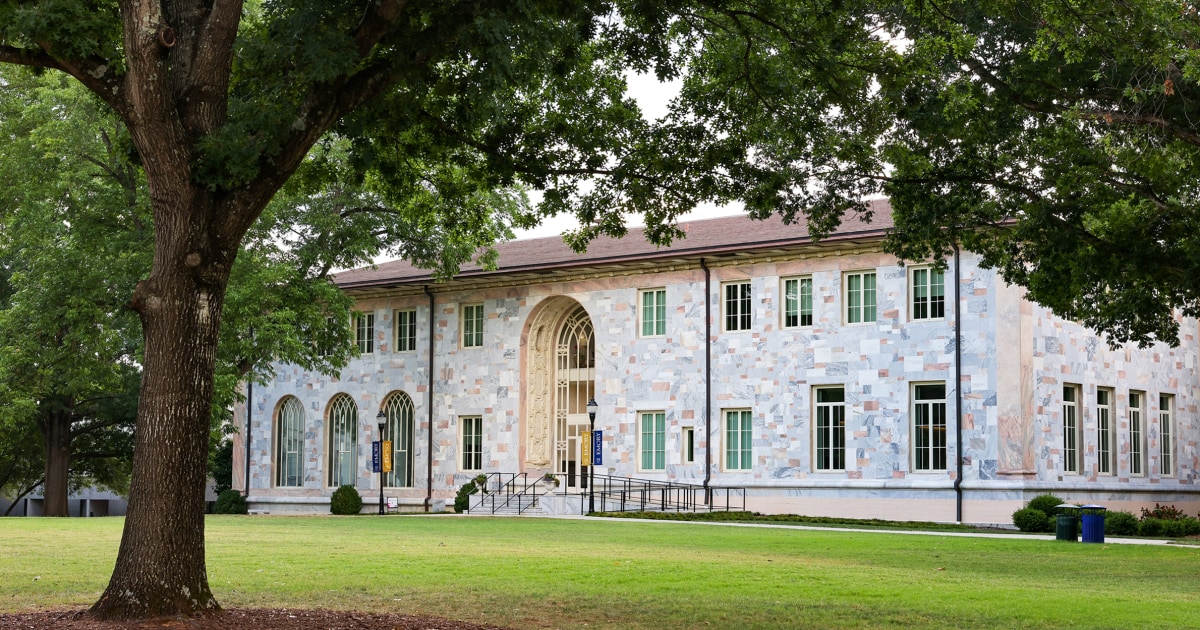Is Emory University Compromising Its Progressive Reputation by Disbanding DEI?

Published: 2025-09-10 21:00:00 | Category: World-Economy
This article explores the recent decision by Emory University to dismantle its diversity, equity, and inclusion (DEI) programs, a move that has sparked significant controversy among students, alumni, and civil rights organisations. The announcement from interim President Leah Ward Sears has prompted a response from both supporters and critics, reflecting the complex dynamics of race, education, and institutional responsibilities in a historically significant context.
Last updated: 03 October 2023 (BST)
Key Takeaways
- Emory University announced the dismantling of its DEI programs, citing compliance with federal mandates from the Trump administration.
- This decision has elicited strong reactions from alumni, students, and civil rights leaders, highlighting a divide in opinions.
- Some alumni advocate for supporting the new president, Leah Ward Sears, while others call for resistance against the dismantling of DEI initiatives.
- The historical context of Emory's location in Atlanta, a centre for the civil rights movement, adds depth to this ongoing debate.
- Legal implications and potential funding threats from the federal government complicate the university's decision-making process.
The Dismantling of DEI Programs at Emory University
On 3 September 2023, Leah Ward Sears, the newly appointed interim president of Emory University, announced the disbanding of the institution's diversity, equity, and inclusion (DEI) programmes. This decision aligns with an executive order issued by former President Donald Trump, which called for the elimination of such initiatives across US colleges and universities. The news has been met with a mixture of shock, disappointment, and concern from various stakeholders, particularly within the Black community and among alumni.
The Reaction from Alumni and Students
Gerald Griggs, a graduate of Emory and president of the Georgia NAACP, expressed his dismay at the university's decision, reflecting the sentiments of many alumni. Griggs stated that DEI programmes were a significant factor in his decision to attend Emory, providing a welcoming environment for students from diverse backgrounds. He has since reached out to President Sears for a meeting to discuss the implications of this decision and has threatened protests if his concerns go unaddressed.
Conversely, a group of Black alumni has rallied in support of President Sears, arguing that she is navigating a challenging legal landscape. Theron Jones, an Emory graduate and dentist, asserted the importance of backing the first Black president of the university and emphasised the need for alumni to support current students during this transitional period. Jones and other alumni have previously established scholarships and funding initiatives to help Black students at Emory, demonstrating a commitment to fostering inclusivity despite institutional setbacks.
Historical Context and Significance
Founded in 1836, Emory University is often referred to as part of the “Ivy League of the South,” known for its academic excellence and progressive values. Its location in Atlanta, a city synonymous with the civil rights movement, amplifies the significance of the university's actions regarding DEI. The decision to dismantle these programmes raises questions about Emory's commitment to social accountability and its role in a historically Black city.
For many, the announcement feels like a retreat from the progress made over decades in promoting inclusivity within higher education. Nathan McCall, a former professor at Emory, voiced concerns that the university's decision reflects a failure to stand up to federal pressure, indicating a broader trend among educational institutions to comply with political mandates rather than resist them.
The Legal Landscape
The federal government, under Trump’s administration, has threatened colleges that resist the executive order with the potential loss of accreditation and federal funding. This threat places universities in a precarious position, where they must balance compliance with their values and commitments to diversity and inclusion. Emory's substantial endowment of £11.3 billion is often cited as a resource that could fund legal challenges to such orders; however, many of these funds are restricted for specific purposes, complicating the university's ability to mount a legal defence.
Comparative Responses from Other Institutions
Emory is not alone in grappling with the implications of the federal government's stance on DEI programmes. Several elite universities, including Columbia University and the University of Pennsylvania, have complied with similar directives. In contrast, Harvard University has taken a stand against the order, engaging in legal battles to protect its DEI initiatives. This divergence in responses highlights the varying degrees of institutional commitment to diversity and inclusion across the higher education landscape.
Implications for Current and Future Students
The dismantling of DEI programmes raises critical questions about the future environment for students at Emory. Many current students, like Adeyemi Oni, a senior and soccer player, express concerns that the removal of support systems for marginalised communities could deter prospective students from applying to Emory. The changing landscape may affect the university's reputation and its appeal to a diverse student body.
Freshman Marquis Sinclair echoed similar sentiments, indicating that the decision could influence his perception of the university's commitment to inclusivity. As students navigate their educational experiences, the implications of this decision resonate deeply, impacting their sense of belonging and support on campus.
Moving Forward: The Role of Alumni and Community Support
As the situation continues to unfold, the role of alumni and community members becomes increasingly vital. Emory graduates are faced with a choice: to challenge the university's decision or to offer support to those currently navigating the institution's changing landscape. Many alumni, like Jones, advocate for a collaborative approach, emphasising the importance of maintaining support for students and the first Black president of the university.
Ultimately, the future of DEI at Emory remains uncertain, as legal, political, and community pressures continue to shape the institution's trajectory. The commitment to social responsibility and inclusivity will be tested in the coming months, as stakeholders navigate the complex interplay between federal mandates and the values that have long defined Emory University.
Conclusion
The decision to dismantle DEI programmes at Emory University has sparked a significant debate about institutional values, community responsibility, and the future of higher education in the face of political pressure. As the university grapples with its identity and mission, the voices of alumni, students, and civil rights advocates will play a pivotal role in shaping its path forward. Will Emory rise to the occasion and reclaim its commitment to diversity and inclusion, or will it succumb to external pressures? The answer may have far-reaching implications for the university and its community.
FAQs
What are DEI programmes?
DEI programmes stand for diversity, equity, and inclusion initiatives aimed at fostering an inclusive environment within educational institutions. These programmes often focus on addressing disparities and promoting representation among students and staff.
Why did Emory University decide to dismantle its DEI programmes?
Emory University announced the dismantling of its DEI programmes to comply with an executive order issued by former President Donald Trump, which mandated changes to such initiatives across US colleges and universities.
How have alumni reacted to the decision to disband DEI initiatives?
The reaction from alumni has been mixed, with some supporting President Leah Ward Sears and advocating for collaboration, while others, like Gerald Griggs, have expressed disappointment and called for protests against the decision.
What is the historical significance of Emory University's location in Atlanta?
Emory University is situated in Atlanta, a city known as the cradle of the civil rights movement. This historical context adds depth to the current debate about the university's commitment to diversity and inclusion.
What are the potential legal implications for Emory University concerning this decision?
Emory faces potential legal implications as the federal government has threatened to revoke accreditation and federal funding for noncompliance with the executive order, creating a complex situation for the university.



